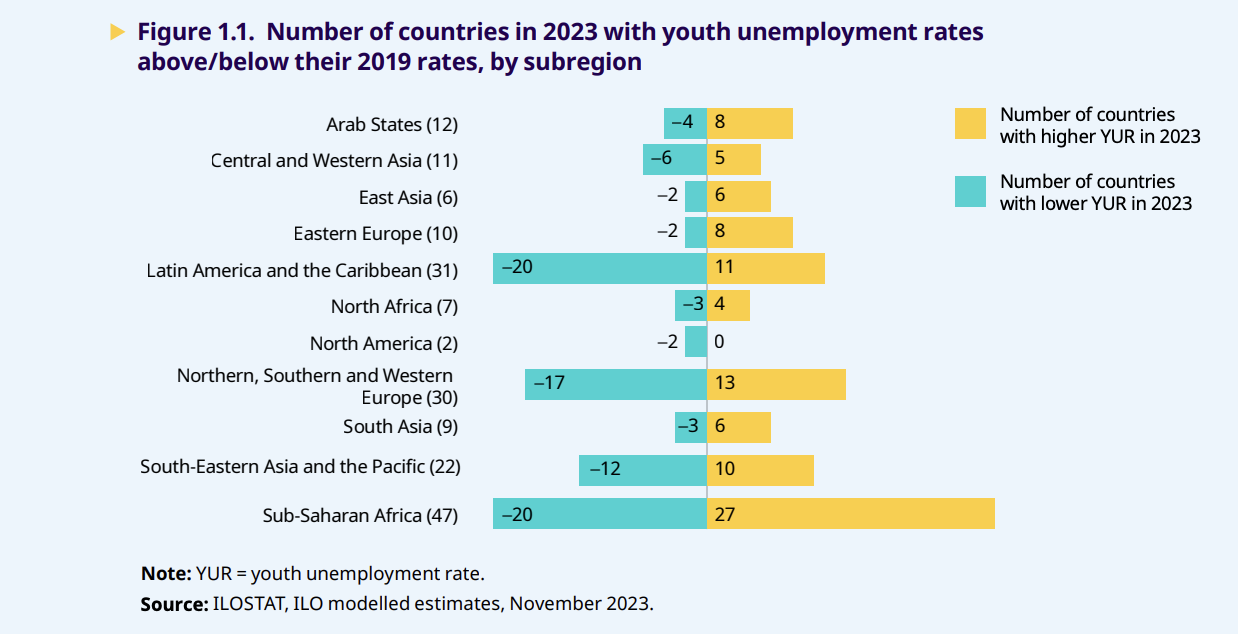
'Opportunities for young people are highly unequal'

The global youth unemployment rate in 2023 has fallen to its lowest level in 15 years, according to the International Labour Organisation (ILO).
The 2023 youth unemployment rate stands at 13%, representing 64.9 million individuals aged 15 to 24. This marks a decrease from the pre-pandemic rate of 13.8% in 2019.
The ILO's Global Employment Trends for Youth 2024 (GET for Youth) report projects that this downward trend will continue, with the rate expected to fall further to 12.8% over the next two years.
However, this improvement in youth employment is not uniform across all regions, according to the ILO report.
It noted that in areas such as the Arab States, East Asia, and South-East Asia and the Pacific, youth unemployment rates in 2023 were higher than in 2019.

"None of us can look forward to a stable future when millions of young people around the world do not have decent work and as a result, are feeling insecure and unable to build a better life for themselves and their families," said Gilbert Houngbo, ILO Director-General, in a statement.
However, the number of young people who are not in employment, education, or training (NEET) remains a significant concern, particularly for young women, according to the report.
In 2023, 20.4% of youth worldwide, or one in five, were NEET.
According to the ILO, two out of every three NEETs in 2023 were female, indicating gender disparities in access to education and employment. The report reveals that the global NEET rate for young women was 28.1% in 2023, compared to just 13.1% for young men.
"The report reminds us that opportunities for young people are highly unequal; with many young women, young people with limited financial means or from any minority background still struggling," Houngbo stated.
To address the problems, the report called for increased investment in creating decent jobs, particularly for young women, and for stronger support systems to help young people transition into employment.
"Without equal opportunities to education and decent jobs, millions of young people are missing out on their chances for a better future," Houngbo said.